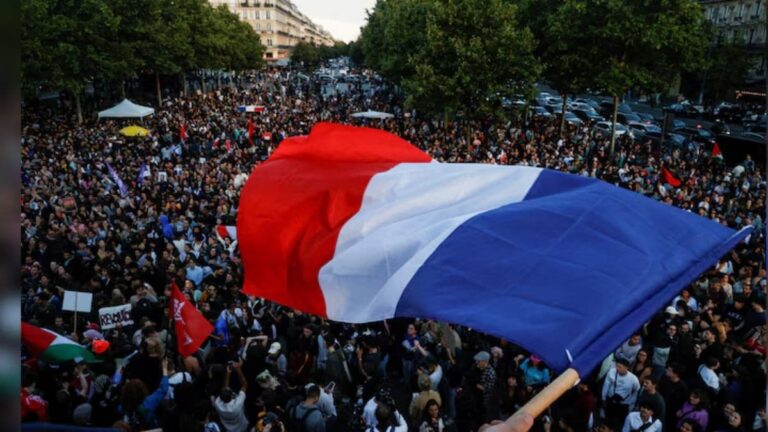France’s left-wing parties cannot agree on a name for the next prime minister (Photo: Reuters)
The wait to choose a new French prime minister is set to get even longer after the candidate recommended by the far-left party Indefatigable France (LFI), Huguette Bello, withdrew from the election, citing a lack of agreement as the reason.
The far-right National Rally (RN) was expected to win the French parliamentary elections by a landslide, but a strategic voting pact between the NPF and President Emmanuel Macron’s centrist coalition, Ensemble (ENS), dropped the RN to third place. The left-wing New Popular Front (NPF) coalition became the largest single party, but fell short of a majority. Of the 577 seats, the NPF won 188, the ENS 161 and the RN 142.
While the NPF has thwarted the RN’s march to victory, the coalition parties have been unable to reach agreement on a prime ministerial candidate, with the main disagreement being between the far-left LFI and the Socialist Party.
Earlier this week, the LFI nominated Bello, a veteran politician from the French overseas territory of Reunion, as its candidate, but the Socialists did not agree. The LFI is the largest party in the coalition with 78 seats, while the Socialists are second with 65.
Is France’s prime ministerial election back to square one?
Following Bello’s withdrawal, France’s search for a new prime minister appears to be back to square one.
Bello had received support from the Communist and Green parties as well as the LFI, but continued opposition from the Socialist Party led to him withdrawing his name as a candidate, citing a lack of consensus “among all party members.”
“I have decided to decline the offer that has been presented to me without further delay, in the hope that an agreement can be reached soon within the NFP,” Bello told AFP.
The Socialist party has argued that only party members, such as its leader Olivier Faure, can accept Macron as prime minister.
Initially, the LFI was expected to nominate its leader, Jean-Luc Mélenchon, for prime minister. Mélenchon is a highly controversial figure, accused of being a radical anti-Semite and notorious for his far-left policies. He is disliked by centrists, as well as by some in the party and coalition government. To deflect opposition to Mélenchon, the LFI proposed Bélot’s name, but the Socialist Party did not agree.
“There is no agreement”
Socialist party secretary-general Pierre Jouvet revealed the NPF’s problems, telling AFP on Saturday that there was “no agreement on a prime ministerial candidate.”
Meanwhile, Macron has said the next prime minister will not be chosen by either the far-left LFI or the far-right RN.
In the French political system, the president appoints the prime minister, who must then be approved by parliament. This means that the prime minister is chosen from the party or coalition that controls parliament, but the president can still have a lot of influence as he can influence who is ultimately appointed from that party or coalition. For now, outgoing Prime Minister Gabriel Attal is running a caretaker government.
The list of candidates for the next prime minister appears to be getting longer, not shorter: By Thursday, the NPF had narrowed it down to either Faure or Bello, but Communist Party leader Fabien Roussel has since endorsed her, according to Le Monde.
As the battle between the LFI and the Socialist Party continued, newspapers reported that the Green Party had put forward former party leader and former housing minister Cécile Duflot as its candidate, while the Communist Party had put forward Christophe Robert, head of the charity Abbé Pierre Foundation.
Earlier this week, the NPF said it would announce its prime ministerial candidate this week, but it appears that no announcement will be made as no agreement has been reached between the parties.
Find us on YouTube
subscribe

